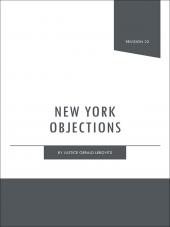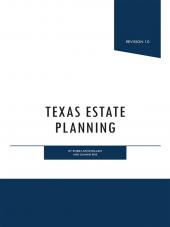New York Objections
Select a format
 International Order Inquiry
International Order Inquiry
Select subscription type
Terms & conditions
Subscribers receive the product(s) listed on the Order Form and any Updates made available during the annual subscription period. Shipping and handling fees are not included in the annual price.
Subscribers are advised of the number of Updates that were made to the particular publication the prior year. The number of Updates may vary due to developments in the law and other publishing issues, but subscribers may use this as a rough estimate of future shipments. Subscribers may call Customer Support at 800-833-9844 for additional information.
Subscribers may cancel this subscription by: calling Customer Support at 800-833-9844; emailing customer.support@lexisnexis.com; or returning the invoice marked "CANCEL".
If subscribers cancel within 30 days after the product is ordered or received and return the product at their expense, then they will receive a full credit of the price for the annual subscription.
If subscribers cancel between 31 and 60 days after the invoice date and return the product at their expense, then they will receive a 5/6th credit of the price for the annual subscription. No credit will be given for cancellations more than 60 days after the invoice date. To receive any credit, subscriber must return all product(s) shipped during the year at their expense within the applicable cancellation period listed above.
The total price includes the product(s) listed in the Order Form and any Updates for a limited period (minimum period of 30 days) after the order is placed ("Order Window"). Shipping and handling fees are not included in the grand total price.
All shipments may be returned, at subscribers' expense, for full credit of the Price within 30 days of receipt.
Shipments may not be returned, and no credits will be issued, more than 30 days after receipt.
After the Order Window, subscribers will receive notice of Updates along with the then-current grand total price and order process as Updates become available. Subscribers will only be shipped those Updates they specifically request.
Product description
View a sample of this title using the ReadNow feature
REVISION 23 HIGHLIGHTS
This 23rd Edition of New York Objections, by Justice Gerald Lebovits, updates the governing law with new text and dozens of new case summaries throughout the book. The new cases span a broad range of topics, from Attorney Conduct to Witness Competence. The highlights include expanded coverage of
- Jury Selection: Court’s duty to explore prejudices of prospective jurors; Batson challenges
- Opening Statement: Statements not supported by the evidence; references to subsequent repairs.
- Hearsay: Testimonial hearsay in violation of Sixth Amendment right to confrontation; admissions by agent (CPLR 4549); admissions on police body-cam video; defendant’s membership in a gang; excited utterances; 911 calls
- Privileges: Scope of attorney-client privilege (documents); attorney work product (documents prepared in anticipation of litigation).
- Real Evidence: Chain of custody.
- Photographs, Recordings, X-rays: Photo identification; photo of victim; surveillance video.
- Demonstrative Evidence: Maps and images from online maps or satellite-imaging websites (e.g., Google Maps and Google Earth) [CPLR 4532-b].
- Witness Examination: Extrinsic proof tending to establish a witness’s bias, recent fabrication, or reason to fabricate; statements taken in violation of Miranda; leading questions asked of children, elderly, non-English speaking, or mentally/physically challenged witnesses.
- Expert Witnesses: Testimony “beyond the ken of the ordinary juror”; objections based on expert’s lack of qualifications, hearsay.
- Judicial Conduct: Removing defendant from courtroom; judicial notice of facts within the judge’s personal knowledge derived from the record of a prior case involving different parties but closely similar subjects or issues.
- Attorney Conduct: Failure to comply with discovery order as “willful and contumacious” behavior; attacks on party or witness.
- Summation: Injecting self or personal belief; vouching for witness’ credibility.
- Demonstrative Evidence: Maps; sketches; diagrams; charts; models; reenactments.
- Witness Competence: Dead Man’s statute; mental and physical impairments; juror as witness; judge as witness.
- Expert Witnesses: Conduit hearsay; accident reconstruction; domestic violence; DNA; eyewitness identification; medical causation; false confessions.
- Judicial Conduct: Judicial notice; expanded commentary and case law re: judicial discretion to regulate the trial; judicial power to adjourn or continue; judicial power to ensure decorum.
- Objections During Deposition: Privilege; irrelevant and/or burdensome line of questioning; outrageous conduct warrants sanctions.
AND MORE!
Additional forms materials are available from James Publishing; access to those materials can be requested directly from James by following guidelines provided within the eBook or emailing forms@jamespublishing.com.
eBooks, CDs, downloadable content, and software purchases are noncancelable, nonrefundable and nonreturnable. Click here for more information about LexisNexis eBooks. The eBook versions of this title may feature links to Lexis+® for further legal research options. A valid subscription to Lexis+® is required to access this content.
 Lexis Nexis
Lexis Nexis 
